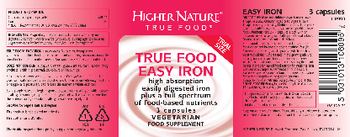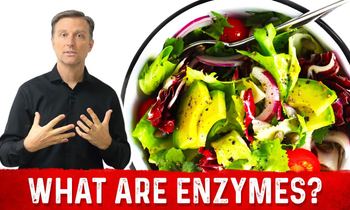True Food Easy Iron

Product Type
food supplement
Packaging Size
Serving Size
1.0 Capsule(s)
UPC
5031013106095
Ingredients
| iron | 5.0 | mg |
Description
TRIAL SIZE As a guide, 5mg of TRUE FOOD(R) EASY IRON may be used in the place of at least 15mg of inorganic iron supplements.
This product is not tested on animals.
This bottle has a UV filter. Food supplements should not be used as a substitute for a varied and balanced diet and healthy lifestyle. TIR003 102 TIR-106-01 Charitable organisations policy: supplements regularly donated Fermentation is a very special process, which enriches yeast with all the nutrients used in the growing mixture, forming natural organic bonds and loose complexes. Yeasts take in nutrients rather than consuming them and are for this reason valued food sources for nutrients. Saccharomyces cerevisiae is grown in a non GM soya-based medium. The yeast cell walls are gently pre-digested and broken down with enzymes from pineapple and papaya fruit to release the nutrients within each cell.
Formulation
high absorption easily digested iron plus a full spectrum of food-based nutrients Suitable for vegetarians and vegans. Iron is added to a completed fermentation of the culture Saccharomyces cerevisiae to form a homogenous mixture for better absorption in the gut and optimum bioavailability of all nutrients. Total content of iron per bottle is 150mg. TRUE FOOD(R) EASY IRON also contains B vitamins, betaglucans, glutathione, choline, inositol, amino acids and other phytonutrients naturally found in fermented food cultures of Saccharomyces cerevisiae (food yeast). DOES NOT CONTAIN: sugar, salt, wheat, gluten, maize, corn, lactose, dairy products, artificial preservatives, colours or flavourings. VEGETARIAN
Precautions
Keep out of reach of children. This product contains iron which, if taken in excess, may be harmful to very young children. Keep out of their sight and reach. Some people have an allergic response to yeast but the allergen, which causes an allergic response, is a protein on the yeast cell wall and when broken down the protein?s ability to evoke an allergic response is lost.
